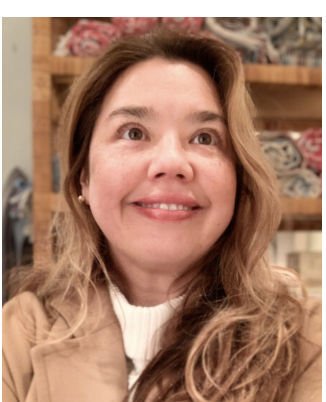To Fight for the Future
Remarks from Tam Huynh at the inaugural Jewish-Asian Friendship Dinner hosted by the Jewish Community Alliance of Southern Maine
My name is Tam Huynh, and I serve as Director of the Holocaust and Human Rights Center of Maine, an organization rooted in the belief that education can build a more just and inclusive future.
At the HHRC, we work to preserve memory, confront hatred, and support human dignity through learning and dialogue. I come to this work with deep conviction and personal connection—and with the understanding that history is not something we simply inherit, but something we are responsible for carrying forward.
When we—the Jewish Community Alliance, Maine Jewish Museum, Asian Community Center of Maine and Khmer Maine, and the HHRC—teach about the Holocaust and the Khmer Rouge, we are not comparing atrocities—we are honoring the distinct histories, identities, and lives that were shattered by them. Each genocide emerges from its own specific conditions, ideologies, and contexts. And yet, what links them is a shared warning: that dehumanization, unchecked power, and silence in the face of hatred can lead to unimaginable harm.
It is important to study these histories in their singularity—so that we can understand not only what happened, but how and why. Each tells a story of cultural erasure, of families destroyed, of lives lived in fear. But each also tells a story of survival, of resistance, of people who refused to disappear.
The importance of this learning is not only historical—it is deeply personal and ongoing. The children and grandchildren of survivors carry with them inherited memory, cultural resilience, and, often, the trauma that has echoed across generations. Their voices matter. Their stories deepen our understanding of what it means to endure, to rebuild, and to ensure that these histories are not forgotten or flattened.
To center the people whose lives are still shaped by these legacies is to acknowledge that genocide does not end when the killing stops. It lingers—in silence, in grief, in strength, in memory. And it is in their telling, in their presence, and in our willingness to listen and learn, that we find the possibility of healing and hope.
Intergenerational memory is not just about the past—it is about the future. It is how we remember, honor, and carry forward the stories, struggles, and resilience of those who came before us. And it is through education and community that this memory stays alive.
In Maine, we are fortunate to have organizations deeply committed to this work. The JCA fosters belonging and connection across generations, creating space for Jewish life to thrive. Whether through cultural programs, community support, or interfaith partnerships, the JCA’s work ensures that Jewish identity is not only preserved—but celebrated, shared, and strengthened.
The Maine Jewish Museum plays a vital role in lifting up the long, rich history of Jewish life in Maine. Through art, storytelling, and education, it honors the lives and contributions of Jewish Mainers and reminds us of how deeply rooted—and still growing—the Jewish community is here. The Delet program, with its focus on Jewish education, helps young people connect with their heritage in meaningful and lasting ways. It ensures that the wisdom, traditions, and values of the Jewish people are passed down and made relevant for the next generation.
This same intergenerational work is powerfully embodied by the Asian Community Center of Maine and Khmer Maine, who for generations have made it possible for Khmer people—especially elders and youth—to gather, heal, and celebrate their culture. These spaces are sacred. They are places where language, memory, food, faith, and identity are held with care and love.
The HHRC is honored to stand alongside these organizations, supporting communities through education, remembrance, and dialogue. From classroom programs to public exhibits, the HHRC helps connect the lessons of the past with the urgency of the present.
All of these organizations show us what it means to do the work of remembrance—and what it means to build communities where people feel seen, safe, and connected. In a time when both Jewish and Asian communities continue to face hate, exclusion, and misunderstanding, the work is not just meaningful—it is necessary.
To fight for the future, we must fiercely protect the spaces that honor our past and nourish our present. We must fight to keep our communities together—not just for the sake of those who came before us, but to light the path for those still seeking a place to belong.
Thank you.

